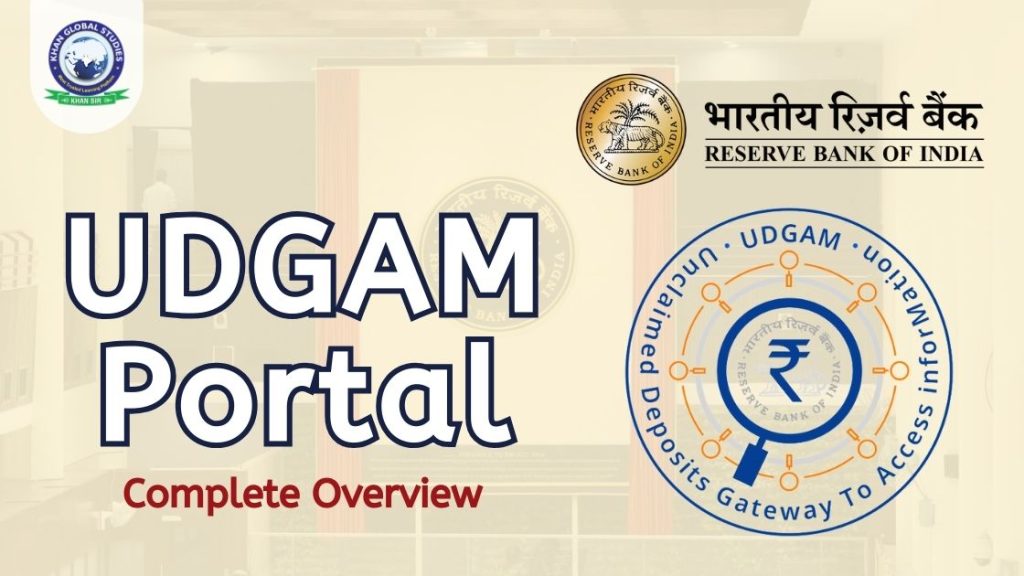Have you ever wondered if some forgotten deposits are lying dormant in your name in various banks? The Reserve Bank of India (RBI) now offers a solution through the UDGAM (Unclaimed Deposits – Gateway to Access information) portal, launched in August 2023. This centralized platform empowers individuals to easily locate unclaimed deposits across multiple banks, simplifying the process of retrieving them.
What is the UDGAM Portal?
The Reserve Bank of India recently launched the UDGAM centralized web portal on September 1, 2023, for individuals to search for such deposits across multiple banks at one place. Regarding the launch of the UDGAM Portal, RBI Governor Shakti Dansa said that through this portal, crores of rupees lying unclaimed in banks will be collected and the people who have deposited that money will be traced and the money will be returned to them.
UDGAM serves as a one-stop portal for individuals to trace unclaimed deposits, including:
- Fixed Deposit (FD)
- Savings Accounts
- Current Accounts
- Mature claims, such as insurance policies or provident funds
- Demand draft, unpaid dividends, or unclaimed shares
Benefits of UDGAM
- Convenience: Search across multiple banks with a single query, eliminating the need to contact each bank individually.
- Transparency: Get easy access to information about unclaimed deposits, including the banks holding the deposits and the estimated amount.
- Empowerment: Take control of your finances and claim what’s rightfully yours.
- Efficiency: Streamlined search process reduces effort and speeds up the claiming process.
How many banks are there on the UDGAM Portal?
Currently, these banks are included on the UDGAM Portal:
- City Bank
- DBS Bank
- State Bank of India
- Central Bank of India
- Dhanlaxmi Bank
- Punjab National Bank
- South Indian Bank.
What is the function of the RBI UDGAM Portal?
The functions of RBI’s UDGAM Portal are described as follows:
- To enable the public to identify their unclaimed deposits from various banks.
- To tell about your money to those people who do not know about their money.
- Raising awareness through public campaigns.
How does the UDGAM Portal work?
The UDGAM portal simplifies the process of identifying and claiming unclaimed deposits by streamlining the steps involved. RBI had collaborated with Reserve Bank of India Information Technology Private Limited (ReBIT), Indian Financial Technology and Allied Services (IFTAS) and select banks to develop this platform.
How to use the UDGAM Portal?
Visit the official UDGAM portal (https://udgam.rbi.org.in/unclaimed-deposits) and follow these steps:
- Register with your PAN Number, Mobile Number and Email Address.
- Provide your search criteria including Name, Bank Account details, or IFSC code (optional).
- Search for unclaimed deposits at participating banks.
- View detailed information about identified deposits.
- Follow the next steps given by the concerned bank to start the claim process.
Important Point
- The portal covers deposits reported as unclaimed by participating banks after a specific period of inactivity.
- Claiming the funds usually involves contacting the concerned bank and completing their claim process.
- UDGAM is a free service, and no intermediaries are required.
- Beware of fraudulent activities by verifying information only through official channels.
Disclosure of Financial Prospects
The UDGAM portal represents an important step towards financial inclusion and transparency. Empowering individuals to reclaim their unclaimed deposits, opens up economic opportunities and promotes financial well-being. So, remember, there may be a forgotten deposit waiting for you. Check out the UDGAM portal today and reclaim what’s yours!
FAQs
Question: What is the UDGAM Portal by RBI?
Answer: Udgam is the portal of RBI which gives information to the people about their unclaimed money.
Question: What is the full form of UDGAM?
Answer: UDGAM = Unclaimed Deposit – Gateway to Access to Information.
Question: When was Udgam Portal launched?
Answer: The Udgam portal was launched on 1 September 2023.



